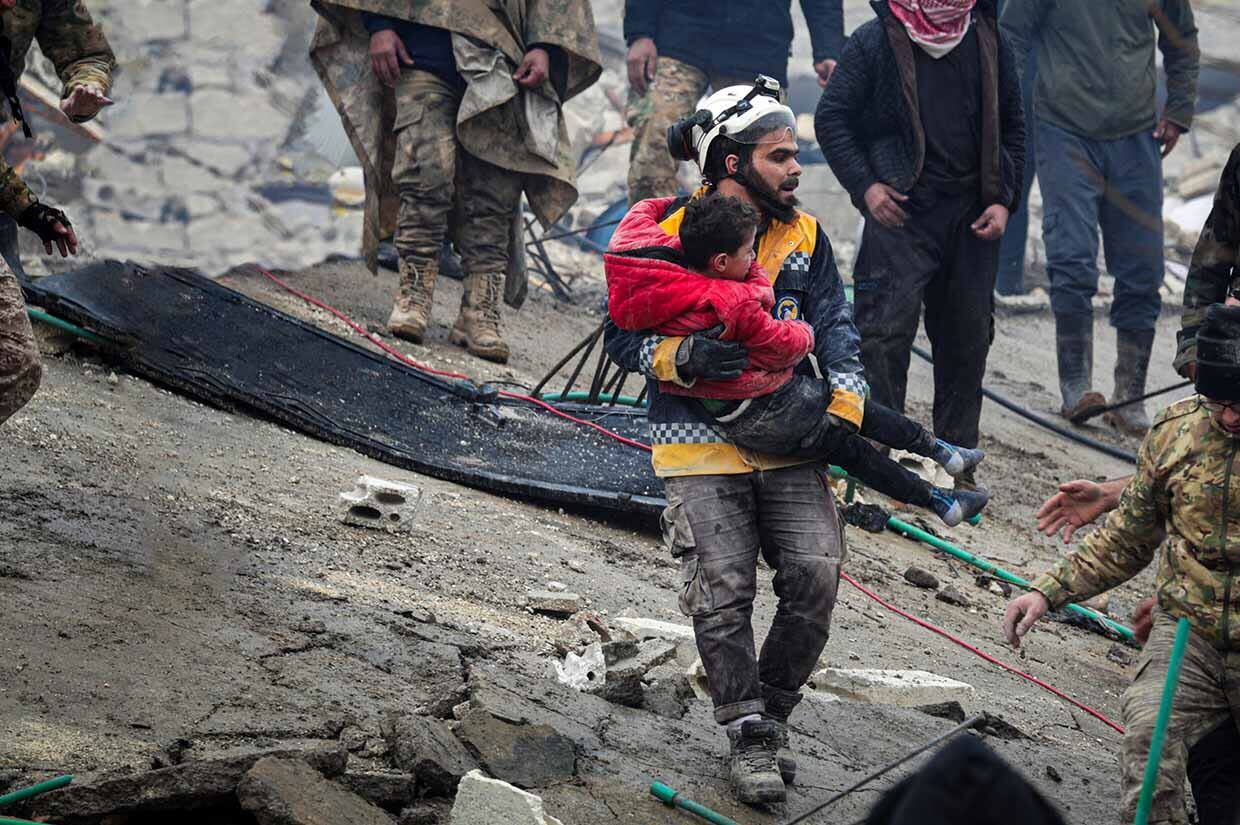At least 35,418 people have been killed in Turkey and at least 5,800 casualties were reported in Syria.
Qatar has doubled down on its commitment to assisting earthquake-stricken Turkey, saying it has placed “all its capabilities” at the country’s disposal as the quakes’ death toll surpassed 40,000.
“Qatar has put all its capabilities at the disposal of the brothers in Turkey to support them after the earthquake disaster,” Dr. Majed Al-Ansari, Qatar’s Foreign Ministry spokesman, told Anadolu Agency on Tuesday.
Dr. Al-Ansari stressed that “every minute that passes without more aid arriving may mean the loss of a precious life.”
The Qatari diplomat’s comments come as the Gulf state rallies to provide much-needed assistance to Turkey following last week’s deadly twin earthquakes, the worst to hit the region this century.
The first 7.8 magnitude earthquake struck early in the morning with the epicenter close to the Turkish city of Gaziantep. Hours later, this was followed by a second quake with a magnitude of 7.5 in southeast Turkey.
One week on, the combined death toll from Syria and Turkey has now surpassed 40,000. At least 35,418 people have been killed in Turkey and at least 5,800 casualties were reported in Syria.
In the wake of the tragedy, Qatar’s Amir Sheikh Tamim bin Hamad Al-Thani was quick to call Turkish President Recep Tayyip Erdogan and was the first leader to visit the country after the earthquakes.
Qatar promptly responded to the crisis by dispatching more than 120 personnel of the Qatar International Search and Rescue Group of the Internal Security Force, Lekhwiya.
Dr. Al-Ansari noted that Qatar’s rescue and relief support is “a major priority at present” and its role there will “continue during the various stages of this crisis as long as it’s needed.”
“The world faces a major humanitarian catastrophe in Turkey and Syria. This is a real test for all humanity,” Dr. Al-Ansari added.
As part of its support, Qatar’s Amir Sheikh Tamim bin Hamad Al-Thani also ordered the launch of an air bridge to the affected areas, equipped with field hospitals, relief aid, tents, medical and winter supplies.
The Gulf state also sent 10,000 mobile homes through the Qatar Fund for Development, and announced it would donate cabins used during the World Cup to house survivors of the quake.
On Friday, the amir also donated QAR 50 million ($14 million) to earthquake victims on live television during the Oun and Sanad campaign.
The campaign successfully gathered QAR 168,015,836 (around $19 million).
“There is no doubt that what brings us together in terms of brotherhood in religion and common history requires us all to be one hand,” Dr. Al-Ansari, also praising the Arab countries’ “comprehensive” response.
Commenting on the global response, Dr. Al-Ansari said it was “an indication that countries of the world can put aside political complexities and economic challenges to deal with a disaster of this magnitude.”
Across the border in Syria, the northern region of the country was particularly hit hard after facing more than a decade-long brutal crisis under the Bashar Al-Assad regime.
The delivery of aid was delayed for days following the tragic earthquakes, particularly in non-Assad regime-held areas in northwest Syria, where only one one cross-border humanitarian corridor was functioning.
Three others were blocked off by Russia’s veto in the UN Security Council, with the regime having to approve the entry of aid if coming through government-controlled areas.
However, aid finally entered the region on Tuesday, with 11 International Organization for Migration trucks passing through the Bab al-Salam crossing, according to the UN.
At the Bab al-Hawa crossing, some 26 inter-agency trucks delivered humanitarian assistance.
Qatar Charity began operating eight health centres worth QAR 7 million as well as a bakery that produces more than 5,000 bundles of bread daily in Syria.
On Monday, a team from the Qatari International Search and Rescue Group also visited several Syrian areas adjacent near the Turkish border, including Jindires.
Meanwhile, QFFD has joined the Syria Civil Defence, also known as the White Helmets, to help with search and rescue operations. Volunteer medics have also been deployed to help with complex surgeries.







